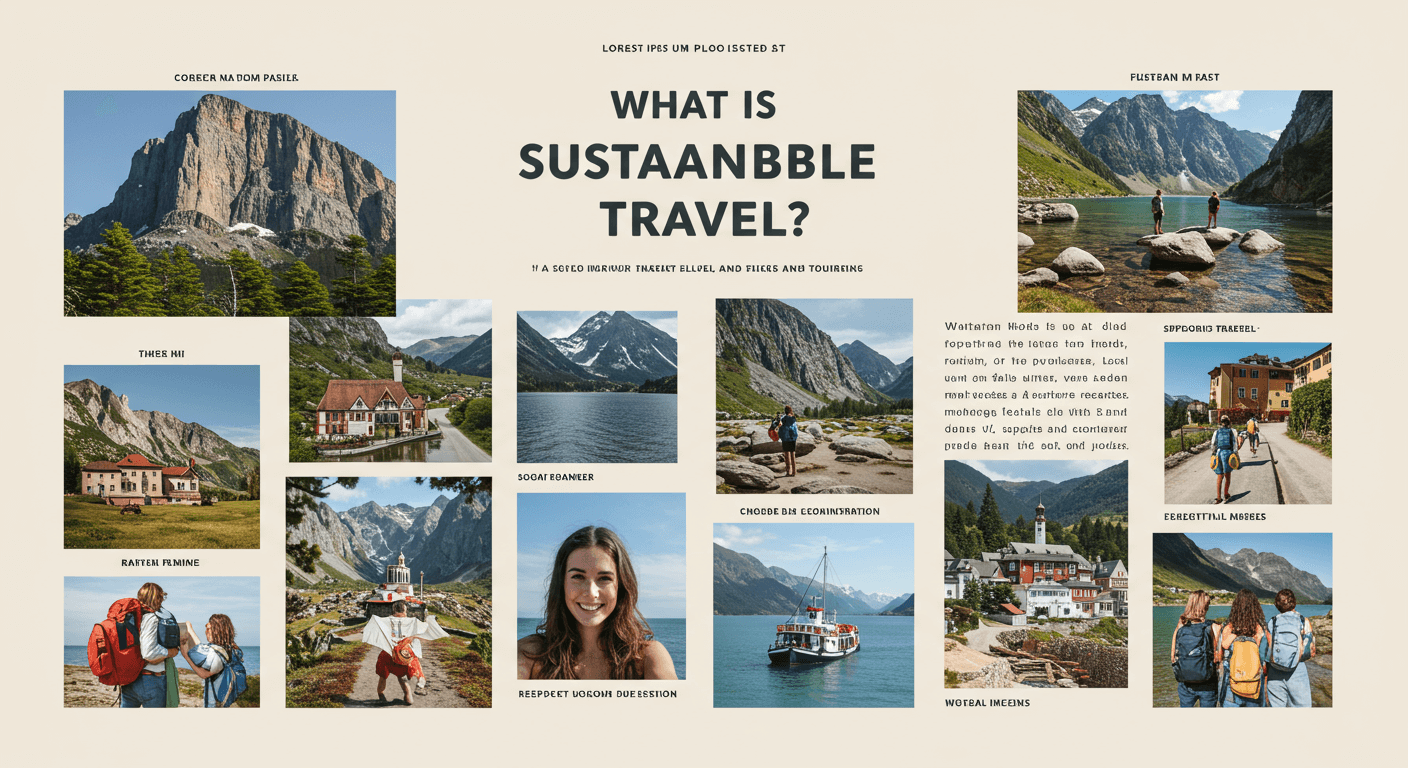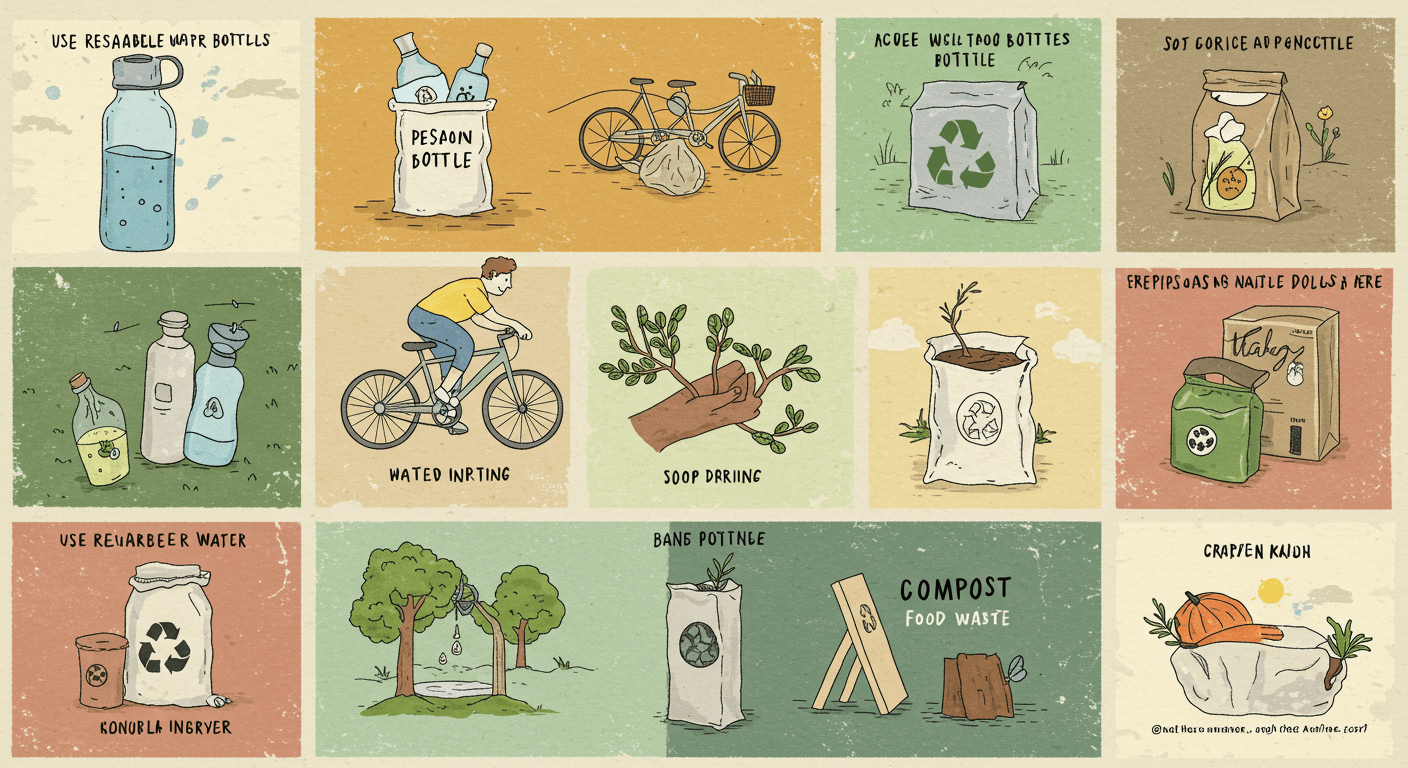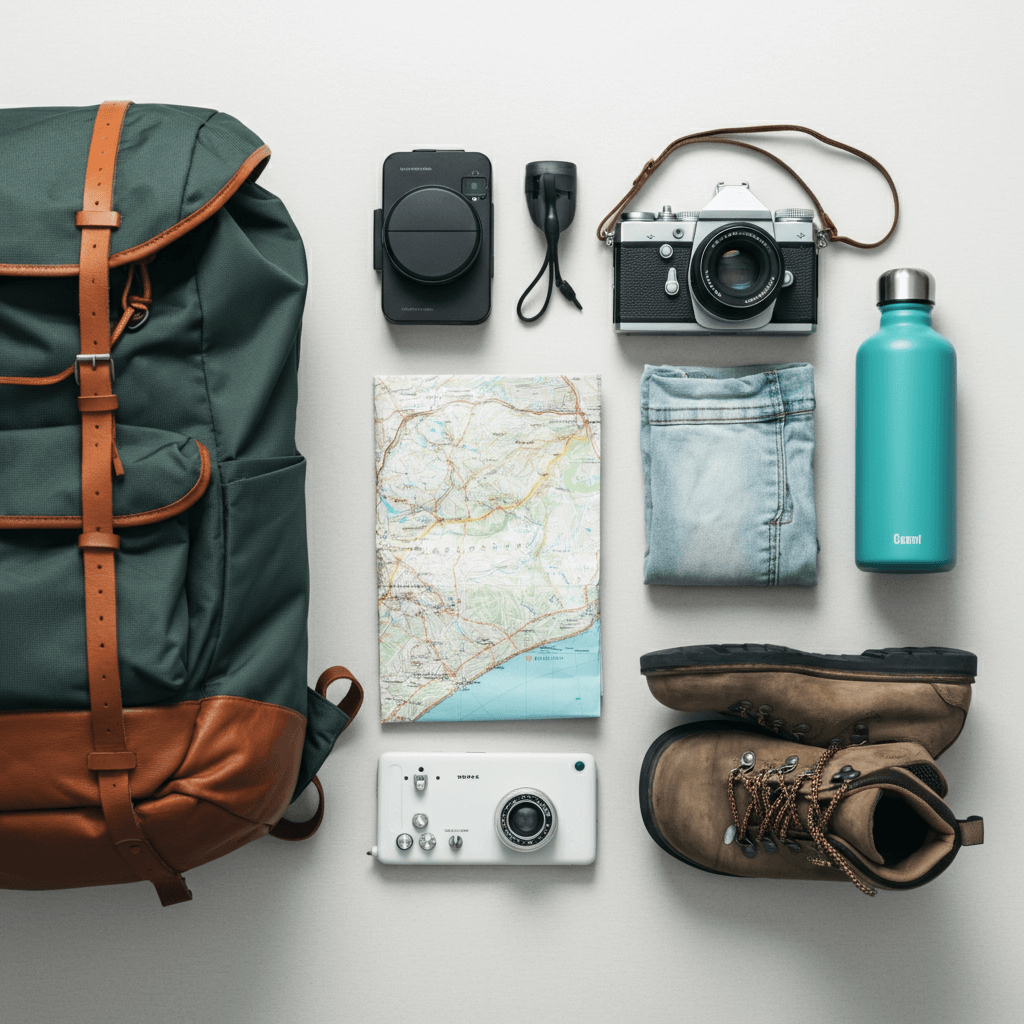Traveling offers life-changing experiences, from breathtaking landscapes to vibrant cultures. But as the world faces environmental challenges, the way we explore our planet matters more than ever. Sustainable travel, often called eco-friendly travel or responsible tourism, is about minimizing negative impacts on the environment and local communities while maximizing the benefits. With this 2025 guide, we will dive into practical tips, top destinations, and actionable advice to help you travel more consciously and leave a positive footprint wherever you go.
Whether you are a seasoned globetrotter or planning your first adventure, this comprehensive guide will provide you with everything you need to know about planning a responsible journey. From choosing eco-friendly accommodations to reducing your carbon footprint, get ready to transform the way you see the world.
What is Sustainable Travel?
Sustainable travel refers to tourism that takes full account of its current and future economic, social and environmental impacts, addressing the needs of visitors, the industry, the environment, and host communities. It encourages travelers to make mindful choices that support local economies, protect natural habitats, and respect cultural heritage. By embracing sustainable practices, you can help preserve destinations for generations to come.

Why Sustainable Travel Matters
Tourism is a powerful global industry, but it can strain fragile ecosystems and local communities. Overcrowded tourist sites, excessive waste, and high carbon emissions from transportation have long-term consequences. Sustainable travel shifts the focus towards low-impact experiences, encouraging eco-conscious accommodations, community engagement, and conservation efforts. This approach not only benefits the environment but also fosters authentic interactions and cultural exchange.
Practical Tips to Reduce Your Environmental Impact
- Choose direct flights when possible to lower carbon emissions.
- Pack light to reduce fuel consumption on planes and vehicles.
- Use refillable water bottles and avoid single-use plastics.
- Support local businesses and artisans for authentic souvenirs.
- Opt for public transportation, biking, or walking instead of taxis.
- Offset your carbon footprint through certified programs.
- Respect wildlife by observing from a safe distance and avoiding animal performances.

Eco-Friendly Accommodations
Modern travelers have a growing range of eco-friendly lodging options. Look for certifications like Green Key, LEED, or EarthCheck. Eco-lodges, sustainable resorts, and green hotels implement water and energy-saving measures, minimize waste, and often support local communities. Consider staying in eco camps, farm stays, or community-based homestays for an immersive experience that benefits local residents.
Responsible Transportation Options
Transportation accounts for a significant portion of travel-related emissions. To travel more responsibly, prioritize low-impact options:
- Trains and buses over short-haul flights for intercity travel.
- Electric or hybrid car rentals for road trips.
- Shared rides or carpools to reduce the number of vehicles on the road.
- Bicycle tours and walking city tours to explore urban destinations sustainably.
Top 5 Sustainable Destinations for 2025
- Reykjavik, Iceland – Known for geothermal energy and zero-waste initiatives, Iceland’s capital offers eco tours and sustainable dining.
- Chiang Mai, Thailand – Explore ethical elephant sanctuaries and community-run eco projects in northern Thailand.
- Portland, Oregon, USA – A green city with bike-friendly streets, farm-to-table cuisine, and extensive urban forests.
- Curitiba, Brazil – Renowned for its innovative bus system, urban planning, and green parks initiatives.
- Queenstown, New Zealand – Adventure capital with a strong commitment to conservation and carbon-neutral tourism programs.
Packing and Gear Recommendations
Packing the right gear can enhance sustainability on the road. Choose durable, eco-friendly luggage and clothing made from recycled or organic materials. Bring reusable toiletry containers, solar-powered chargers, and compostable sanitary products. A lightweight travel towel, collapsible water filter, and multi-use travel adapters can also reduce waste and improve convenience.

Conclusion
Sustainable travel is not a niche trend, but a crucial shift in how we explore our planet. By making intentional choices, from transportation to accommodations and daily habits, each traveler can contribute to a healthier environment and more equitable travel industry. Use this 2025 guide to plan your next adventure with purpose, respect, and mindful curiosity. Together, we can ensure that the beauty and diversity of our world remain vibrant for future generations.





